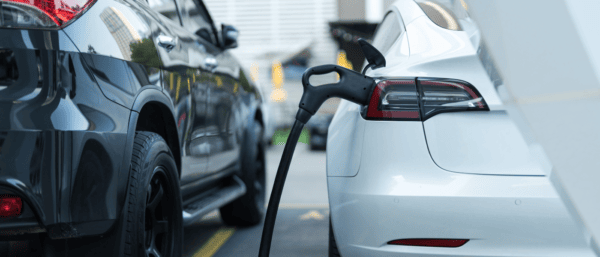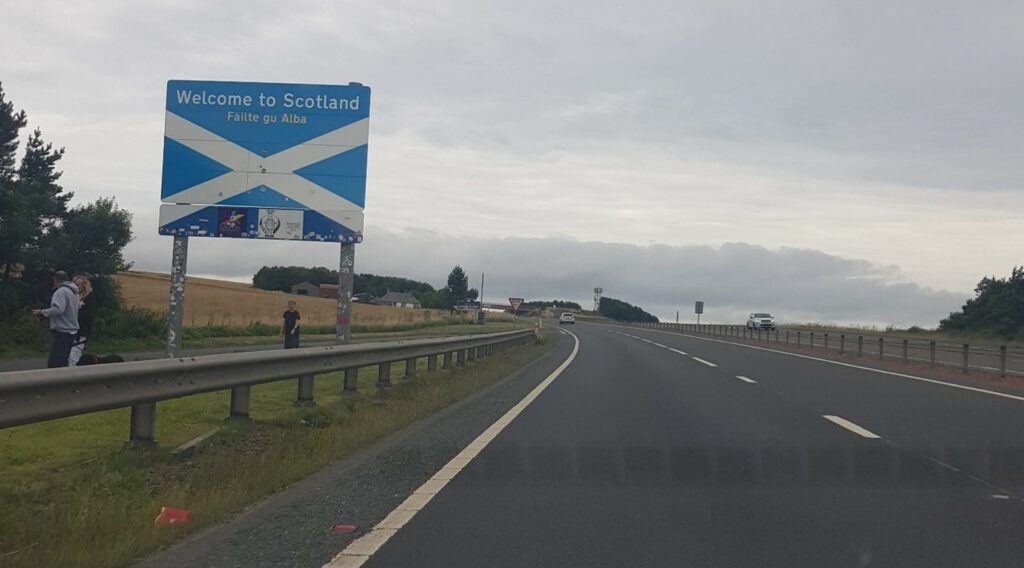Navigating the Road: Overcoming Electric Vehicle Range Anxiety.

This article was written by Sava‘s Energy Data Consultant, Sam Lott.
In the ever-evolving landscape of sustainable transportation, electric vehicles (EVs) have emerged as a promising solution to mitigate environmental impacts and reduce our dependence on fossil fuels. However, one lingering concern for potential EV adopters is the fear of range anxiety — the worry that an electric vehicle might run out of charge before reaching its destination. Yet, as the electric vehicle infrastructure continues to expand, real-world experiences, such as my recent journeys from Milton Keynes to Edinburgh and Cornwall, highlight the strides made in overcoming this perceived hurdle.
The Journey to Edinburgh: A Seamless Adventure
Embarking on a road trip from Milton Keynes to Edinburgh might sound like a daunting task for an electric vehicle owner; however, my personal experience shattered any preconceived notions of electric vehicle range anxiety. Covering over 400 miles, my VW ID3, equipped with a 58kWh battery with a reported range of up to 260 miles, needed just two charging stops at convenient motorway service stations I found along the way.
This trip marked my first use of the car’s navigation system, having previously relied on Google Maps or Waze to navigate around. When I needed to charge, I would use apps such as ZapMap, which easily locates charge points around the country. ZapMap even allows you to filter charge points by speed, so you can find a rapid charge point with higher power rates if you need to charge quickly.
I decided to use my car’s navigation system for the first time, which was an absolute delight. I entered my hotel’s postcode, and it instantly calculated the optimal route with stops calculated along the way. It even factored in the amount of time taken to charge into the overall journey time, which allowed me to have an accurate arrival time.

Upon arrival at the service station, initiating a charging session was easy. I had to find the charge point, use the associated app, and then plug in. Rapid charge points meant that my stops were around 45 minutes long, which gave me more than enough time to grab a coffee and stretch my legs before the next section of driving.
Most modern electric vehicles excel in user-friendly interfaces, offering real-time data on charging station availability, speed, and estimated charging times. The integration of this technology not only diminishes range anxiety but also ensures a hassle-free journey for the driver.
EV Charging Apps
One of the common frustrations of EV drivers is the need for multiple charging apps. Different companies have their own apps for initiating and paying for charging sessions, making the process cumbersome, especially for those who are less tech-savvy. A comprehensive app that consolidates all charging companies would greatly simplify the experience, catering to a broader audience and enhancing the accessibility and user-friendliness of electric vehicle travel. Notably, some charge points, like those provided by Gridserve, are eliminating the need for apps, allowing users to simply tap their contactless cards for authorisation and start charging. During my trip to Scotland, the charge points I encountered did not require me to use an app; simply tapping my bank card began the charging session.
Queue Times at EV Charge Points
During my recent trip, I consistently found an ample number of available chargepoints at each stop, alleviating any worries about waiting times. Surprisingly, during my time owning an EV, I’ve only had to queue up to charge twice. Both times were in spots with brand new chargepoints and the wait was less than 20 minutes both times. Most EV users usually have their own home chargepoints, and unless you’re embarking on a road trip, you might not ever need to worry about finding a charging spot. The day-to-day ease of having your own charging station is what makes life with an EV so effortless.
EV Charging Expenses
In total, my charging expenses for the entire trip amounted to approximately £100, with the cost of electricity being 79p per kWh at the charging stations I used. Charging at rapid charge points comes at a higher price compared to traditional ones. I typically avoid such elevated rates. However, in the case of occasional journeys like this, it was a necessary expense.
The Verdict
My return journey to Edinburgh was much less stressful than I anticipated, with numerous charging stations along the way. I had no fear of running out of charge at any point. My previous anxiety disappeared entirely, thanks to my car’s navigation system. Even without it, apps such as Zapmap would have produced the same result.
Cornwall Bound: Rapid Charging, Rapid Progress
My second trip from Milton Keynes to Porthleven in Cornwall emphasised how practical electric vehicles can be for long distances and highlighted other considerations to bear in mind. This time, I had a full car with five of us on board, which slightly impacted the car’s range. We made three instead of the projected two charge stops, but thanks to rapid charging speeds, it did not cause a massive delay.

Uncertain but pleasantly surprised
Before setting off, I was a bit more anxious this time. I was not sure about the charging options in Cornwall. The town we stayed in had just one charging spot, and our house did not have one, although I did bring my portable lead just in case. However, upon arrival, I was pleasantly surprised to find that the charging station was just a short 15-minute walk away from our place. It was user-friendly, and like many electric charging spots visited, it even offered free parking.
The growing network of well-placed rapid charging stations made a considerable difference, turning what could have been a nerve-wracking journey into a smooth and enjoyable one. Strategically scattered along the route, these charge points not only eased worries about charging in unfamiliar places but also highlighted the increasing support for electric vehicle travel.
The Future of Electric Vehicle
These personal anecdotes testify to the evolving landscape of electric vehicle infrastructure. The persistent fear of range anxiety is gradually giving way to the reality of a well-connected charging network, advanced navigation systems, and improved battery technologies.
Ongoing initiatives are expanding the charging infrastructure to alleviate further concerns surrounding range anxiety, emphasising strategic placement along major travel routes. Governments, private entities, and car manufacturers are collaborating to create a robust network that ensures EV users can confidently embark on cross-country journeys without the constant worry of running out of power.
Additionally, advancements in battery technology are extending the range of electric vehicles, providing users with increased mileage on a single charge. As these technologies mature, the anxiety associated with EV range will likely become a relic of the past.
In Conclusion
My first hand experiences driving from Milton Keynes to Edinburgh and Cornwall highlight the considerable progress made in overcoming EV range anxiety. With a combination of intelligent navigation systems, easily accessible charging stations, and rapid charging capabilities, the modern electric vehicle is breaking down barriers and redefining the way we approach long-distance travel. As infrastructure continues to expand and technology advances, the future looks promising for electric vehicles, making them not only an environmentally conscious choice but a practical and convenient one as well.